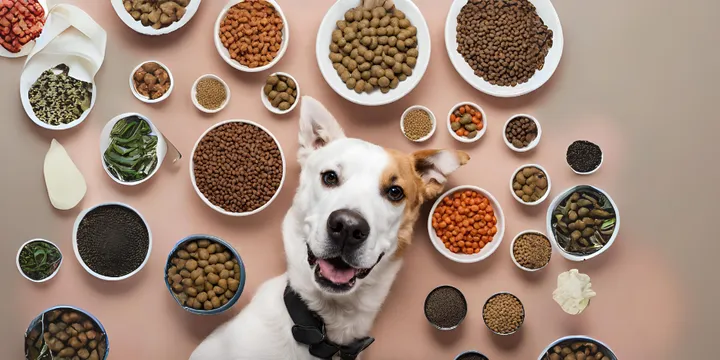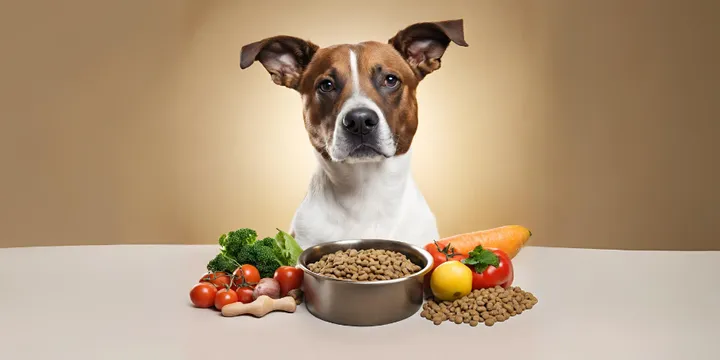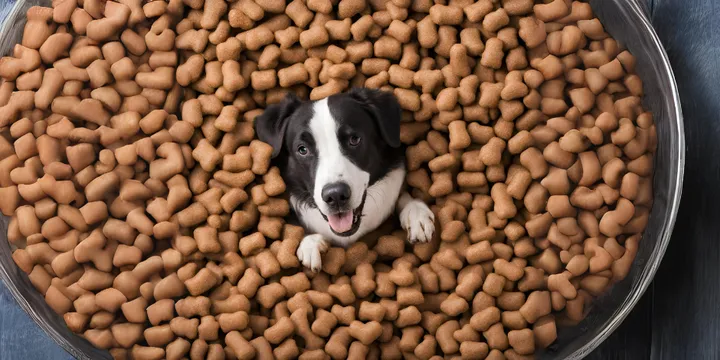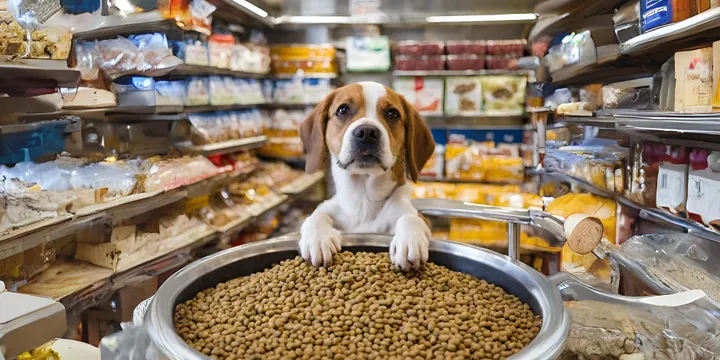
Diet and its Impact on your Dog's Health

When it comes to dogs, what they eat can make a big difference in how they feel.
Just like humans, dogs need the right kind of food to stay healthy.
The food your furry friend devours can have a major impact on their well-being. Here, we'll explore how your dog's diet influences his health.
Is Your Dog's Diet in Good Health?
Your dog may not be able to talk, but his body can send you signals about his diet.
If your dog has bad breath or a strange odor, it could be related to what he eats.
A shiny, healthy coat is a good sign, but if it's dull, his diet could be the culprit.
Things like dandruff and excessive hair loss are warning signs. If your dog has flatulence (gas), diarrhea or constipation, it could be due to his diet.
If you notice any of these signs, it is important to talk to your veterinarian.
Veterinarians are like doctors for dogs and can provide expert advice.
Diet-Related Health Problems
Around the world, obesity in dogs is a major concern.
It happens when a dog carries too much weight and has become a widespread problem.
Obesity can lead to other serious diseases.
One such disease is pancreatitis. It is often caused by eating too much fatty food at one time.
This condition is more dangerous than it first appears, and early awareness is critical.
Diabetes is another condition that affects dogs, as well as some people.
It is often related to poor nutrition and obesity. Although it cannot be cured, it can be controlled with insulin injections and a special diet.
If you suspect your dog is at risk, consult your veterinarian.
Skin and Coat Problems
Your dog's skin and coat are crucial indicators of his health. If your dog's diet lacks essential nutrients, his coat may lose its luster and his skin may become dry and flaky.
Some dogs even develop itchy skin or unpleasant odors due to food allergies.
Allergies can make your dog uncomfortable, and we want our furry friends to be happy and itch-free.
Gut Health Matters
Have you ever heard of "leaky gut" syndrome? It's also known as Dysbiosis.
If your dog vomits frequently or has diarrhea, it could be due to poor gut health.
Dysbiosis can manifest itself in a variety of ways, from allergies and behavioral problems to intestinal disorders and immune system disorders.
But don't worry too much; your veterinarian can help you solve the puzzle.
The "Big C" - Cancer
Cancer is a scary word for everyone, including our four-legged friends.
Genetics, age and environment all play a role, but what your dog eats is significant.
If your dog carries extra weight, it can increase his chances of developing cancer.
That extra fat can cause inflammation, which is not good for anyone.
Heart Issues
Finally, let's talk about your dog's heart. Just like humans, dogs can have heart problems.
Proper nutrition is critical. Too much sodium (salt) can lead to heart problems.
This increases blood pressure and puts additional stress on the heart.
While age and genetics also matter, what your dog eats is a vital piece of the puzzle.
So remember, your dog's diet is important. It can affect his health in many ways.
To keep your furry friend happy and healthy, talk to your veterinarian and make sure he's eating the right things - your dog will wag his tail in appreciation!
About the Author

Jennifer works as a veterinarian and is an expert in the field of dog care. She is constantly up to date with the latest developments and insights in the world of dog care, and she loves to share her expertise with other dog lovers.









